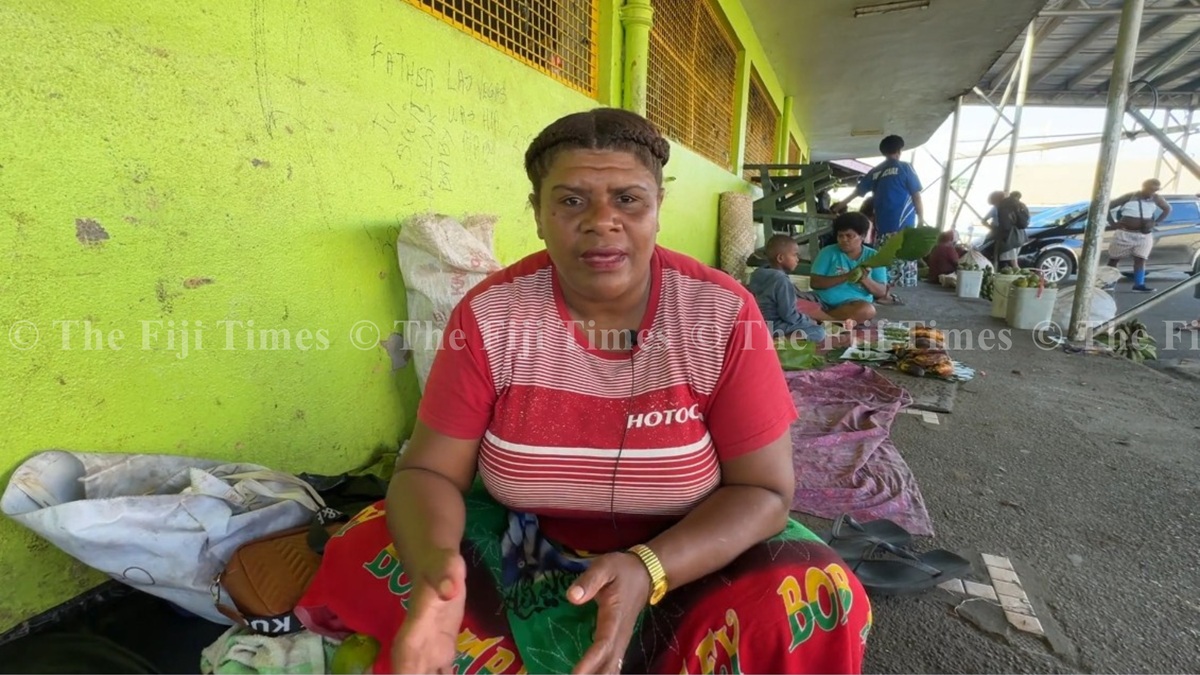Midnight in Sawanikula is rarely still for women who farm.
It is the hour they board an already full carrier, loading bundles of dalo and yaqona into the truck as they begin their trip to the Suva market.
As tough as it sounds, this is the only way farming families earn enough to keep their lives going, and it has become a routine they have learned to accept.
Mariana Rerekula, 42, has lived this way for many years.
She has been farming in Sawanikula Village for more than two decades and only began the daily trips to Suva in 2023, but the challenges have remained the same.
“Sometimes we don’t even sleep because we have to wait for a ride to town,” she said.
“The carrier leaves for town at 12am. Sometimes it’s very full and crowded so the ride is very uncomfortable. If we get to the market and it’s empty, we sit properly. If it’s full, we struggle to find a spot to sell from and this often leads to fights among us vendors because of the limited space.”
Behind the trips is the hard work done long before the produce reaches the market. Mariana and her family depend on their farm, and much of what they bring to Suva take months or years to grow.
“We plant yaqona, dalo, cassava, and vudi. Yaqona can take five or six years to grow. We wait for it to mature, we uproot it then clean and dry it. Dalo takes about eight months to a year before we bring it to the market to sell.”
Moving the crops from the farm to the riverside is another part of the day that is often overlooked.
“We rely a lot on horses which makes it easy for us to bring our produce to where the carrier is. But when there are no horses, we have to carry the produce ourselves from our farms all the way to where the carrier parks.”
The river plays a big part in determining whether the journey to town happens at all. Heavy rain can delay everything.
“Sometimes there’s a lot of rain and this makes it difficult to come across the river. We have our plans but when we face this issue, there’s not much we can do but wait until the river level recedes then we go across the river to board the carrier and get to the market.”
Even on days they make it to Suva, the conditions they work in are far from ideal.
“Sometimes when we come to the market and it’s raining, the places we have to sit and sell are very dirty but we have to make do – and we still have to pay for the space we sell from.”
Mariana says staying overnight at the market has become common for many of them, especially when there is unsold produce.
“Sometimes a lot of produce isn’t sold and this adds to the difficulties we face. What we hope to take back home in income is far less than expected.
“Sometimes we have no choice but to stay back and sleep here when there’s a lot of unsold produce,” she said, adding that slow days make the trip heavy on their household budget.
Still, she perseveres. She knows that good days do come, and those days matter.
“Sometimes things go well, and this makes us happy because it means we can fulfill our obligations to our families and also the village needs for contributions.”
For Mariana and many others who rely on the market for their income, the work offers no guarantee.
What keeps them going is the responsibility they carry for their homes, their children and the commitments expected in the communities they live in.



